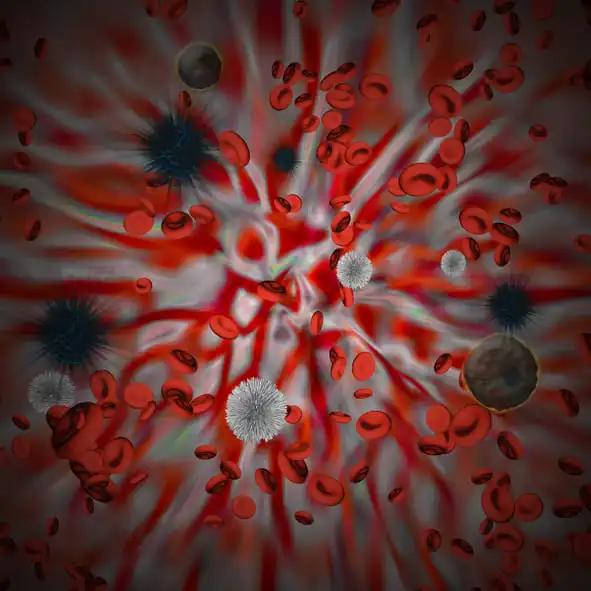KEY TAKEAWAYS
- The SUNLIGHT Phase III trial (NCT04737187) aimed at the efficacy of FTD/TPI alone against FTD/TPI plus Bev in extensively pretreated mCRC patients.
- 18-year-olds with histologically proven mCRC who had received 1-2 prior chemotherapy regimens, including particular drugs, were enrolled. They randomly received FTD/TPI alone or with Bev—specified dosages and schedules.
- FTD/TPI with Bev raised the median OS from 7.5 to 10.8 months. FTD/TPI plus Bev had significantly longer progression-free survival than FTD/TPI alone.
- The study concluded that FTD/TPI + Bev demonstrates significant and meaningful improvement in OS (10.8 months) and a 39% reduction in HR of death in refractory mCRC patients, with an acceptable safety profile.
Trifluridine/tipiracil (FTD/TPI) plus bevacizumab (Bev) demonstrated promising efficacy in a randomized phase 2 trial of patients (pts) with metastatic colorectal cancer (mCRC) who had been severely pretreated. The SUNLIGHT study confirmed these findings. Patients above or equal to 18 years old with histologically confirmed mCRC, ECOG PS 0/1, and treated with 1-2 prior chemotherapy regimens in an advanced setting, including fluoropyrimidines, irinotecan, oxaliplatin, an anti-VEGF monoclonal antibody (if medically considered), and anti-EGFR monoclonal antibody for RAS wild-type tumors were enrolled in the global phase 3 SUNLIGHT study.
Patients were randomly assigned to receive either FTD/TPI alone (35 mg/m2 twice daily on days 1–5 and 8–12 of each 28-day cycle) or FTD/TPI in combination with Bev (5 mg/kg on days 1 and 15). The primary outcome measure was overall survival (OS). About 492 patients were randomized between November 2020 and February 2022 to receive either FTD/TPI + Bev (n = 246) or FTD/TPI (n = 246). The baseline characteristics of each arm were comparable. FTD/TPI plus Bev significantly increased OS compared to FTD/TPI alone, with a median OS of 10.8 months versus 7.5 months (HR, 0.61; 95% CI, 0.49, 0.77; P< 0.001). At 12 months, OS rates in the FTD/TPI + Bev arm were 43%, and in the FTD/TPI arm, they were 30%. The median progression-free survival in the FTD/TPI + Bev arm was 5.6 months compared to 2.4 months in the FTD/TPI arm (HR, 0.44; 95% CI, 0.36,0.54; P< 0.001). The incidence of adverse events (AEs) of grade 3 was not significantly higher in the FTD/TPI + Bev arm compared to the FDT/TPI arm (72.4% vs. 69.0%). There were no novel safety signals noted. The study concluded that FTD/TPI + Bev demonstrates significant and meaningful improvement in OS (10.8 months) and a 39% reduction in HR of death in refractory mCRC patients, with an acceptable safety profile.
Source:https://meetings.asco.org/abstracts-presentations/215763
Clinical Trial:https://clinicaltrials.gov/ct2/show/NCT04737187?term=NCT04737187&draw=2&rank=1
Josep Tabernero, Gerald W. Prager, Marwan Fakih, Fortunato Ciardiello, Eric Van Cutsem, Elena Elez, Felipe Melo Cruz, Lucjan Wyrwicz, Daniil Stroyakovskiy, Zsuzsanna Papai, Pierre-Guillaume Poureau, Gabor Liposits, Chiara Cremolini, Igor Bondarenko, Dominik Paul Modest, Karim A. Benhadji, Ronan Fougeray, Catherine Leger, Nadia Amellal, Julien Taieb/Trifluridine/tipiracil plus bevacizumab for third-line treatment of refractory metastatic colorectal cancer: The phase 3 randomized SUNLIGHT study/J Clin Oncol 41, 2023 (suppl 4; abstr 4) DOI10.1200/JCO.2023.41.4_suppl.4



